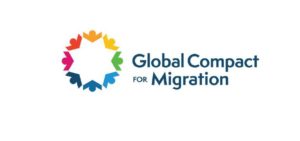Global Compact on Migration a step closer
 A global agreement on a framework to help manage migration for the nearly 260 million people living outside their countries of origin has moved a step closer with publication of two seminal documents.
A global agreement on a framework to help manage migration for the nearly 260 million people living outside their countries of origin has moved a step closer with publication of two seminal documents.
This week the ‘zero draft’ the Global Compact for Safe, Orderly and Regular Migration was released just week after the zero draft of the Global Compact on Refugees.
As the reports were released, UN Secretary-General António Guterres called for the “need for action, and the need for engagement, and the need for a UN that is fit for purpose.
“Globally, migration remains poorly managed. The impact can be seen in the humanitarian crises affecting people on the move; and in the human rights violations suffered by those living in slavery or enduring degrading working conditions,” Mr Guterres said at the launch.
“It can be seen, too, in the political impact of public perception that wrongly sees migration as out of control,” he said.
With 22 objectives and dozens more “actionable commitments,” the draft compact, though less detailed, resembles the UN Sustainable Development Goals framework.
Many of the compact’s objectives — like the SDGs’ 17 goals — create ambitious targets, such as the ideas of managing “borders in an integrated, secure and coordinated manner” and creating “conditions for migrants and diaspora to fully contribute to sustainable development in all countries”.
And some of framework’s objectives — including empowering “migrants and societies to reach full inclusion and social cohesion” — are also very broad, difficult to implement and able to be interpreted in various ways.
Among the first organisations to analyse the documents was the US-based International Rescue Committee which, while praising the emphasis on refugee education and livelihoods and its inclusion of development generators, took the document task over a lack of binding agreements.
“…without clear outcomes and targets for the changes we want to see in the lives of refugees and their host communities, there is little to drive action and keep governments accountable,” the IRC said.
“The draft offers a menu of suggested ways to move towards a comprehensive refugee response, but falls short in offering a clear direction on roles and responsibilities,” it said in a statement.
“Although there is a strong emphasis on a multi-stakeholder approach—rightly putting refugees themselves at the center of the compact—it lets governments off the hook, potentially weakening States’ responsibilities,” the IRC said.
The migration compact document sets out 22 objectives and an agenda for their implementation.
“This Global Compact expresses our collective commitment to improving cooperation on
international migration,” the document says.
“Migration has been part of the human experience throughout history, and we recognize that it can be a source of prosperity, innovation and sustainable development in our globalized world. The majority of the more than a quarter billion migrants around the world today travel, live and work in a safe, orderly and regular manner.
“But migration undeniably affects our countries in very different and sometimes unpredictable ways. It is crucial that international migration unites us rather than divides us. This Global Compact sets out our common understanding, shared responsibilities and unity of purpose regarding migration,” the document says.
Laurie Nowell
AMES Australia Senior Journalist












